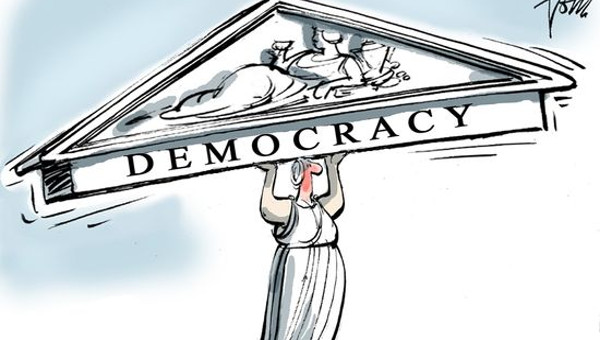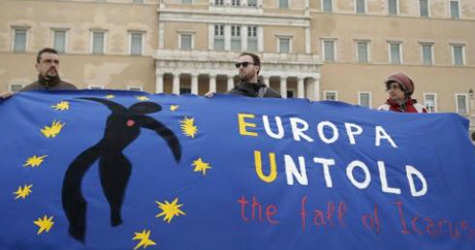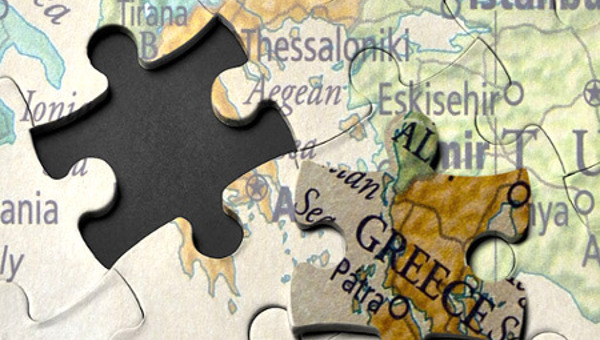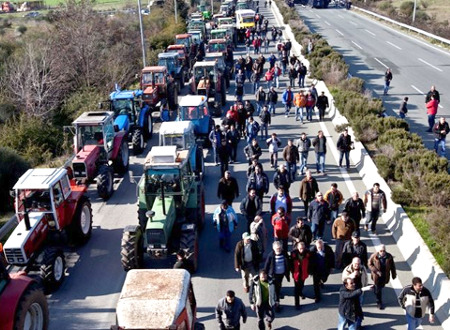Syriza’s Rise
The rise of Syriza, Greece’s Coalition of the Radical Left, in the May elections and in polls since has changed the political landscape of Europe. Michalis Spourdalakis, professor of political science at Athens University, talked to Alex Doherty (of New Left Project) about Syriza, the reasons for their success and what the prospects are now for the radical left in Greece and beyond.
Alex Doherty (AD): Some mainstream commentators have claimed that the rise in support for Syriza is part of a generalised protest vote against the political mainstream rather than an enthusiastic embrace of their political and economic programme. What do you make of that diagnosis?
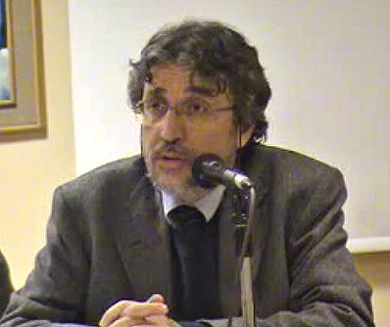 Michalis Spourdalakis (MS): Indeed a good part of the electoral gain of Syriza was the result of social anger arising from the austerity programs and the Stability Pact. The protest vote was the determinant factor in the elections. However, given the large number of options open to the electorate with the creation of a number of new political formations and parties, one can reasonably assume that the vote for Syriza was not simply a protest vote.
Michalis Spourdalakis (MS): Indeed a good part of the electoral gain of Syriza was the result of social anger arising from the austerity programs and the Stability Pact. The protest vote was the determinant factor in the elections. However, given the large number of options open to the electorate with the creation of a number of new political formations and parties, one can reasonably assume that the vote for Syriza was not simply a protest vote.
Syriza, a political coalition of the radical left, which was established in 2004, has had a long presence in the social and political struggles of the country. It is in fact a political formation composed of eleven different political parties and groups, in which the Synaspismos (Coalition) of the Left and the Ecology and Social Movements (SYN), accounts for approximately 85 per cent. Its political orientation, strategy and practice is socio-centric. Syriza has been actively involved in the labour movement, both at the level of the conformist Confederations and at the grassroots level of the radical new unions of precarious labour, in the civil and social rights movements, as well as in the European and World Social Forums.
So, given the political profile of Syriza, it would be rather unfair to say that the people who supported it did so simply as a result of anger or mere discontent as it is conditioned by the the current conjuncture. At the same time, on the key axis of current Greek society and politics, i.e., the Memorandum signed with the IMF and EU, one has to stress that Syriza stands clearly in opposition, and not on the grounds of nationalism, as some other opposition parties claim. On the contrary Syriza’s rationale and discourse is based on an analysis that the crisis is not simply the result of the shortcomings of the Greek political economy, but rather a by-product of the global capitalist crisis as articulated and expressed by the EU and the Eurozone.
Syriza also sees the political remedies proposed by the government coalition as an offensive of the dominant classes against working people and the traditional petite bourgeoisie. In addition, its program involves the restructuring of the Greek development model, social control of the banks, and the protection of the working-class, the unemployed and the poor. Thus, it is not only the popular anger that contributed to Syriza’s electoral gains but a political (though not necessarily ideological) proximity of the population to its policies. In fact the commitment to the latter, was accompanied with a commitment to contribute to the formation of a left wing government in alliance with left political forces.
AD: It is typically claimed that a Greek exit from the Eurozone would be catastrophic for the Greek economy, however some leftist commentators point to the example of the Argentine banking crisis and Argentina’s rapid recovery following its default. Which scenario do you find more plausible in the Greek context?
MS: Fiscal and monetary policy are not simply technical issues. Although the technical dimension is important, these issues are primarily social and political in essence. Thus, any technical advice should always give primary consideration to the social (and of course economic) and political balance of power and dynamic. This is a mistake made by all those who make the aforementioned proposal. The Argentinean situation is different from that of Greece. Even if one leaves aside the fact that it has been over a decade since this country’s default, during which we witnessed radical developments in the global economy, the social and economic conditions in Greece today and in Argentina over ten years ago are very different. Greece’s real economy has much less potential than the Argentinean one while the social conditions and mainly the balance of social power is not conducive to the prospect of following the path of Latin America. The unilateral declaration of default would have led to a tremendous backlash for the left.
Alternatively, given that Greece’s problem is very similar to that of the other Eurozone countries and that these problems have revealed the fundamental shortcomings of the Euro and the austerity policies which have been imposed, the radical alternative is to rally the people against the Memorandum. Then, given that a possible exit of Greece from the Eurozone, as all serious economic and mainstream observers and politicians claim, would have devastating results for the world economy, a left wing Greek government can negotiate a new agreement with the Eurozone. Key preconditions for the success of this strategy are: a) not turning this process into a debate among technocrats; b) rallying the people around the idea that staying in the Eurozone is definitely a choice on the grounds of solidarity but this should not be pursued at ‘all costs’ as the right wing and various modernizers claim; and c) the development of a movement of solidarity among the left political forces in and outside the official European institutions. This strategy ensures that in case of failure the people will be informed and mobilized and presumably ready to confront, through solidarity networks, the hardships that will follow the default.
AD: Syriza argues in favour of remaining in the Eurozone but rejecting the present bailout conditions. What do you think the prospects would be for a Syriza led government to renegotiate terms with the European authorities whilst remaining in the zone?
MS: The rationale of my previous comment answers part of this question. However, I would like to underline the fact that Syriza’s proposal is not to renegotiate the so-called bailout agreement but rather is a complete rejection of it. Its proposal is: a) to postpone any payments to the country’s creditors until the economy shows signs of growth (Greece has entered its 5th consecutive year of recession as it holds the world record in GNP contraction with over 20 per cent). This is in fact similar to the plan followed by Germany in 1953; b) to socially control the banks and reorient their activity so they can provide credit for development which will restructure the real economy in the country; c) the abolition of all the anti-labour laws and the reestablishment of all necessary welfare policies which will ameliorate the social calamities caused by the Memorandum (e.g. 30 per cent on or under the poverty line, 22 per cent unemployment, 51 per cent unemployment among the youth).
AD: Aside from its position on the bailout could you outline the most salient aspects of Syriza’s political programme more broadly? To what extent, and in what ways, might they take Greece down an anti-capitalist path?
“Syriza’s programme and most importantly its political practice are based on mobilizing the society, … ‘empowering the powerless.’ In this context, Syriza’s proposed reforms are radical since in addition to having labour and social reforms at its heart, they realize a bottom up strategy, which aims to establish a vision of a ‘society of needs.’”
MS: In the Greek context the most salient aspect of the Syriza’s political programme is its plan to undermine the governmental model, which for the longest time has functioned by ignoring popular, social and working-class concerns and demands. It is a model that in the last two years is not just indifferent to societal needs but actively sees society as the ‘enemy.’ Syriza’s programme and most importantly its political practice are based on mobilizing the society, realizing a strategy: ‘empowering the powerless.’ In this context, Syriza’s proposed reforms are radical since in addition to having labour and social reforms at its heart, they realize a bottom up strategy, which aims to establish a vision of a ‘society of needs.’
AD: Why is the KKE, the Greek Communist party, being so intransigent in its refusal to work with Syriza?
MS: The KKE is today a rare breed of Communist party. Its political coordinates are closer to the Portuguese Communist Party, although the latter is less dogmatic and with much less romantic sentiment toward the glorious past of the Third International and the Soviet type of regimes. In the last few years its social presence has been organized through the formation of front organizations in various locals (labour, students, local and regional movements), which are exclusively controlled by the Party. Its rhetoric and overall activism is grounded on the analysis that the country’s membership in the EU should be terminated and anyone who even critically supports EU membership is seen as pro-capitalist. With this profile and strategy, the KKE has a selective presence in social struggles – mainly in those that it is capable of controlling or even using to expand its recruitment. This strategy seems to be transforming the party from a political organization capable of influencing or capturing governmental power into a mere pressure group. In the last local and regional election (fall 2010) the KKE essentially refused to assume any responsibility at that level although on many occasions it had opportunity to assume governmental responsibilities at least in many of the cities.
Thus, the sectarianism noted before and after the May election is not a surprise. However, after the results of the last election and the significant advancement of Syriza (from 4.6 per cent in 2009 to 16.8 per cent) the party’s rank and file has been challenging the leadership strategy, especially its refusal to even consider its participation in a left wing coalition government. In fact, the post-electoral opinion polls already predict a drop by more than 30 per cent of the electoral support of the party. At that point, at no great risk, one could predict serious developments within this party following the June election.
AD: The last elections saw significant gains for the neo-fascist party ‘Golden Dawn’ – could you tell us something about the party’s historical roots and its political programme? How serious a threat do you think Golden Dawn is to Greek democracy?
MS: The rise of Golden Dawn to electoral prominence is indeed a very worrisome phenomenon, not just for Greece but for Europe. This party is clearly a militaristic neo-Nazi political formation whose membership is mainly made up of a number of thugs, many of whom have been under judicial investigation for extreme criminal acts against immigrants and left-wing activists. It is a party which has a relatively strong presence in high-schools, especially in working-class neighbourhoods as well as in neighbourhoods with a high level of criminality related to poverty and social exclusion. In addition, as recent electoral studies indicate, and this is even more worrisome, members and supporters of this party have penetrated the middle and lower ranks of the police force.
Despite these facts, I believe that the popularity of Golden Dawn in last election does not indicate that there is a strong neo-Nazi current on the Greek political scene. Most of this vote, which reached almost 7 per cent, is simply an apolitical and protest vote. Many of its voters did not know that this party shares ideas with the Nazism of the interwar period. What strengthens this type of politics are the dire social consequences of the stability pact, the lack of any serious immigration policies, the de-democratization of police due to the PASOK government’s neo-authoritarianism and the failure of democratic and progressive citizens to co-ordinate an effective antifascist campaign. In any event, this party is not going to disappear; however, its popular vote will definitely decrease in the next election.
AD: You emphasise the importance of developing and strengthening Europe-wide networks of solidarity. Those reading this, many of whom will be UK-based, may be wondering how such solidarity can best be built. Do you have any advice?
MS: In addition to the obvious solidarity networks already in place (Party of the European Left (PEL) and the Confederal Group of the European United Left/Nordic Green Left in the European Parliament) Syriza is expected to gather support from all of those who rally against the austerity policies imposed by the Stability Pact. As Syriza plans to renegotiate the whole arrangement and the fiscal prerequisites of the Eurozone support can come even from mainstream political forces that see both the impasse of the very foundation of Euro and object to the bypass of the European institutions by the initiatives of the axis of Merkel and Sarkozy. •
Articles by Michalis Spourdalakis:
- “Greek Democracy in the Post-Euro Era” Relay No. 15.
- “Left Prospects in the Post-PASOK Era” Relay No. 24.


